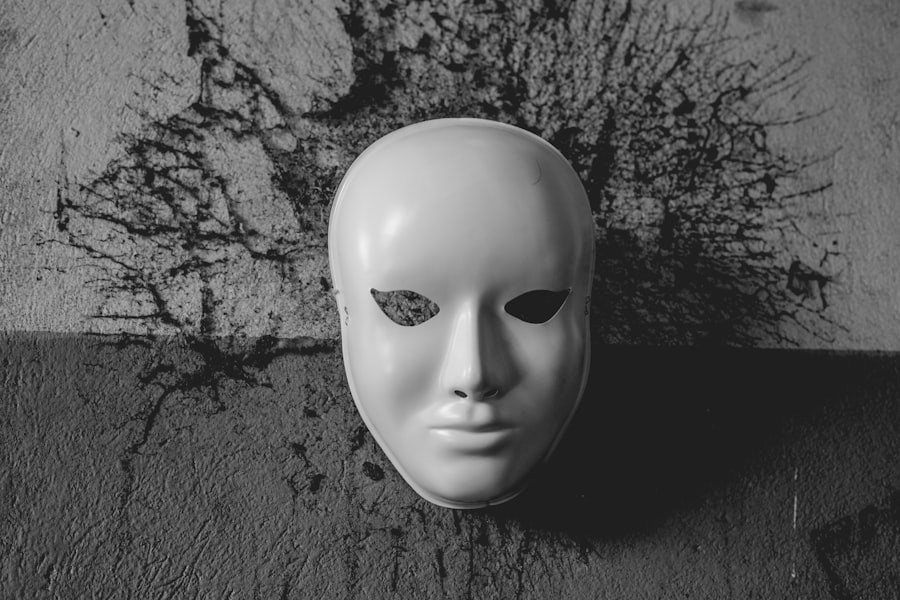Depersonalization and derealization are psychological phenomena that can leave you feeling detached from your own thoughts, feelings, or sense of self. When you experience depersonalization, you may feel as though you are an outside observer of your own life, as if you are watching yourself in a movie. This can lead to a profound sense of disconnection from your identity and emotions.
On the other hand, derealization involves a sense of unreality regarding your surroundings. You might perceive the world around you as strange, dreamlike, or distorted, making it difficult to engage with your environment fully. These experiences can be unsettling and confusing, often leading to anxiety and distress.
While they can occur in isolation, they frequently manifest together as part of a broader dissociative experience. Understanding these phenomena is crucial for recognizing their impact on your mental health and daily life. It’s important to note that while depersonalization and derealization can be symptoms of various mental health conditions, they can also occur in response to extreme stress or trauma, making them relevant to a wide range of individuals.
Key Takeaways
- Depersonalization and derealization are dissociative disorders that involve feeling detached from oneself and the surrounding environment.
- Symptoms of depersonalization include feeling like an outside observer of one’s thoughts and actions, while derealization involves feeling like the world is unreal or distorted.
- Causes and triggers of depersonalization and derealization can include trauma, stress, anxiety, and substance abuse.
- Depersonalization and derealization can affect daily life by causing difficulties in relationships, work, and overall functioning.
- Seeking professional help for depersonalization and derealization is important for accurate diagnosis and effective treatment.
Symptoms and Signs of Depersonalization and Derealization
The symptoms of depersonalization and derealization can vary significantly from person to person. You might find yourself feeling emotionally numb or disconnected from your body, as if you are observing yourself from a distance. This sensation can be accompanied by physical symptoms such as dizziness or a sense of floating.
You may also experience a lack of control over your actions or feel as though your thoughts are not your own. These feelings can be disorienting and may lead to increased anxiety or panic. In terms of derealization, you might notice that your surroundings seem foggy or unreal.
Objects may appear distorted, colors may seem muted, or sounds may feel distant. You could also experience a sense of time distortion, where moments feel stretched or compressed. These symptoms can create a barrier between you and the world, making it challenging to engage with others or participate in daily activities.
Recognizing these signs is the first step toward understanding what you are experiencing and seeking appropriate help.
Causes and Triggers of Depersonalization and Derealization

The causes of depersonalization and derealization are complex and multifaceted. Often, these experiences are linked to significant stressors or traumatic events in your life. For instance, if you have experienced abuse, loss, or a major life change, you may find yourself grappling with feelings of detachment as a coping mechanism.
Your mind may create these dissociative experiences as a way to protect you from overwhelming emotions or memories associated with trauma. Additionally, certain mental health conditions can predispose you to these experiences. Anxiety disorders, depression, and post-traumatic stress disorder (PTSD) are commonly associated with depersonalization and derealization.
Substance use can also play a role; for example, the use of hallucinogenic drugs or alcohol withdrawal can trigger these sensations. Understanding the potential causes and triggers in your life can help you identify patterns and seek appropriate support.
How Depersonalization and Derealization Affect Daily Life
| Impact | Effects |
|---|---|
| Emotional Impact | Feelings of detachment, numbness, and emotional blunting |
| Social Impact | Difficulty connecting with others, feeling isolated |
| Work/School Impact | Difficulty concentrating, decreased productivity |
| Physical Impact | Heightened anxiety, panic attacks, and physical symptoms |
| Everyday Activities | Difficulty enjoying hobbies, feeling disconnected from surroundings |
Living with depersonalization and derealization can significantly impact your daily life and overall well-being. You may find it challenging to connect with others or engage in social situations due to feelings of disconnection. This can lead to isolation and loneliness, as you might feel that no one truly understands what you are experiencing.
Everyday tasks may become overwhelming when you struggle to feel present in your own life. Moreover, these experiences can affect your ability to concentrate and make decisions. You might find it difficult to focus on work or school assignments when your mind feels detached from reality.
This lack of engagement can lead to decreased productivity and increased frustration. The emotional toll of feeling disconnected can also contribute to anxiety and depression, creating a cycle that is hard to break. Recognizing how these experiences affect your daily life is essential for finding effective coping strategies.
Diagnosing Depersonalization and Derealization
Diagnosing depersonalization and derealization typically involves a comprehensive evaluation by a mental health professional. During this process, you will likely discuss your symptoms, medical history, and any significant life events that may have contributed to your experiences. The clinician may use standardized assessment tools to gauge the severity of your symptoms and how they impact your functioning.
It’s important to differentiate between depersonalization/derealization disorder and other mental health conditions. A thorough assessment will help rule out other potential causes for your symptoms, such as anxiety disorders or mood disorders.
Treatment Options for Depersonalization and Derealization

Treatment for depersonalization and derealization often involves a combination of therapeutic approaches tailored to your individual needs. Psychotherapy is one of the most effective methods for addressing these experiences. Cognitive-behavioral therapy (CBT) can help you identify negative thought patterns and develop healthier coping strategies.
Through therapy, you can work on processing any underlying trauma or stressors contributing to your feelings of detachment. In some cases, medication may be prescribed to help manage symptoms associated with anxiety or depression that often accompany depersonalization and derealization. Antidepressants or anti-anxiety medications may be considered based on your specific situation.
It’s essential to work closely with a healthcare provider to determine the best course of action for your treatment.
Coping Strategies for Managing Depersonalization and Derealization
While professional treatment is vital, there are also several coping strategies you can employ to manage depersonalization and derealization in your daily life. Grounding techniques can be particularly helpful in bringing you back to the present moment when you feel detached. These techniques might include focusing on your breath, engaging in physical activities, or using sensory experiences—such as holding an object with texture—to reconnect with reality.
Mindfulness practices can also be beneficial in managing these experiences. By cultivating awareness of your thoughts and feelings without judgment, you can create a sense of acceptance around your experiences rather than fighting against them. Journaling about your feelings can provide an outlet for expression and help you track patterns in your experiences over time.
The Connection Between Depersonalization and Derealization and Mental Health
Understanding the connection between depersonalization/derealization and mental health is crucial for recognizing the broader implications of these experiences.
This overlap can complicate diagnosis and treatment but also highlights the importance of addressing all aspects of your mental health.
Experiencing depersonalization or derealization can exacerbate feelings of anxiety or depression, creating a cycle that is difficult to break without intervention. By acknowledging this connection, you can take proactive steps toward seeking help and developing a comprehensive treatment plan that addresses both the dissociative experiences and any underlying mental health issues.
Understanding the Difference Between Depersonalization and Derealization
While depersonalization and derealization are often discussed together, it’s essential to understand their distinct characteristics. Depersonalization primarily involves feelings of detachment from oneself—your thoughts, emotions, or body may feel foreign or unreal. In contrast, derealization pertains to the perception of the external world; it feels as though the environment is distorted or unreal.
Recognizing these differences can aid in identifying what you are experiencing more accurately. This understanding is crucial not only for self-awareness but also for communicating effectively with mental health professionals about your symptoms.
Supporting a Loved One with Depersonalization and Derealization
If someone close to you is experiencing depersonalization or derealization, offering support can make a significant difference in their journey toward healing. Start by listening without judgment; allow them to express their feelings openly without fear of invalidation. It’s essential to create a safe space where they feel comfortable sharing their experiences.
Encourage them to seek professional help if they haven’t already done so. You might offer to accompany them to appointments or help them research treatment options. Additionally, educating yourself about depersonalization and derealization can enhance your understanding and empathy toward their situation.
Seeking Professional Help for Depersonalization and Derealization
If you find yourself struggling with depersonalization or derealization, seeking professional help is a crucial step toward recovery. A mental health professional can provide guidance tailored specifically to your needs, helping you navigate the complexities of these experiences. They will work with you to develop coping strategies, explore underlying issues, and create a treatment plan that addresses both the dissociative symptoms and any co-occurring mental health conditions.
Remember that reaching out for help is a sign of strength rather than weakness; it demonstrates your commitment to understanding yourself better and improving your quality of life. With the right support and resources, it is possible to manage depersonalization and derealization effectively, allowing you to reconnect with yourself and the world around you once again.
Understanding depersonalization and derealization can be quite complex, as these experiences often involve a disconnection from one’s sense of self or reality. For those seeking to delve deeper into these phenomena, an insightful article can be found on Unplugged Psych’s website. This resource provides valuable information on the symptoms, causes, and potential treatments for depersonalization and derealization. To explore this topic further, you can read the article by visiting Unplugged Psych.
LEARN MORE About Unmasking the Mysteries Behind Depersonalization and Derealization
FAQs
What is depersonalization and derealization?
Depersonalization is a mental health condition where a person feels detached from their own thoughts, feelings, and body. Derealization is a similar condition where a person feels detached from their surroundings, as if the world around them is unreal.
What are the symptoms of depersonalization and derealization?
Symptoms of depersonalization and derealization may include feeling like an outside observer of one’s thoughts or body, feeling like the world is distorted or unreal, and experiencing emotional numbness.
What causes depersonalization and derealization?
Depersonalization and derealization can be caused by various factors, including trauma, stress, anxiety, depression, and substance abuse. They can also be associated with other mental health conditions such as panic disorder and post-traumatic stress disorder.
How are depersonalization and derealization diagnosed?
Depersonalization and derealization are diagnosed based on a person’s reported symptoms and experiences. A mental health professional may conduct a thorough evaluation to rule out other potential causes and to determine the best course of treatment.
What are the treatment options for depersonalization and derealization?
Treatment for depersonalization and derealization may include therapy, medication, and lifestyle changes. Cognitive-behavioral therapy (CBT) and mindfulness-based approaches have been found to be helpful in managing these conditions.
Can depersonalization and derealization be cured?
While there is no specific cure for depersonalization and derealization, many people are able to manage and reduce their symptoms with appropriate treatment and support. It is important for individuals experiencing these symptoms to seek help from a mental health professional.




